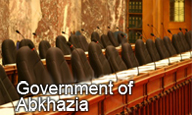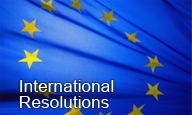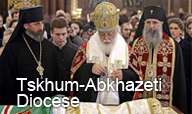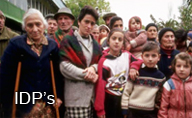The Committee of Ministers of the Council of Europe, convened at the level of Deputy Ministers on October 21, adopted a decision on the conflict in Georgia, reiterating “the unequivocal support” for Georgia’s sovereignty and territorial integrity.
The decision condemned the Russian Federation’s continued “military exercises and infrastructure reinforcements” in Abkhazia and Tskhinvali region/South Ossetia, underscoring that 12 years after the conflict between Georgia and Russia, Moscow’s military presence in the occupied regions continues to impede security in the wider region, as well as the peaceful conflict resolution process.
The Committee once again called upon Moscow to withdraw military and security forces from the Georgian regions of Abkhazia and Tskhinvali, enabling the “establishment of international security mechanisms,” in accordance with the EU-mediated 2008 Ceasefire Agreement.
The Committee stated that Russia has ignored “constant calls” to cease “installing razor and barbed wire fences and other artificial obstacles along the administrative boundary lines (ABLs),” and voiced concern regarding the continued arbitrary detentions “of local inhabitants along the ABLs.”
The Deputy Ministers also took note of the deteriorating human rights situation and “intensified discrimination of Georgians” in the Russian-occupied regions, evident in restrictions to freedom of movement, the right to work and property, the right to education in native language, the right to liberty and security, and in demands aimed at ethnic Georgians to change their surnames and ethnic identity.
The decision acknowledged that restrictions on crossing into Abkhazia and the Tskhinvali regions “lead to severe humanitarian consequences for the local population,” and underscored the Committee’s concern over “impunity surrounding the deaths of ethnic Georgians – Archil Tatunashvili, Davit Basharuli, Giga Otkhozoria and Irakli Kvaratskhelia.
The Deputy Ministers also reiterated “the high priority” of addressing the security and humanitarian challenges through the Geneva International Discussions (GID) – the multilateral format for addressing the consequences of the 2008 Russo-Georgian War.
The Committee also encouraged the CoE Secretary-General to continue the submission of the biannual consolidated reports on the conflict to the Committee of Ministers.
The Deputy Ministers “deeply regretted” that neither the Commissioner for Human Rights, Council of Europe monitoring bodies, nor the Secretariat delegation preparing the consolidated reports, have been granted access to the Russian-occupied regions, and called on Russia to secure immediate and unrestricted access.
Civil.ge






















